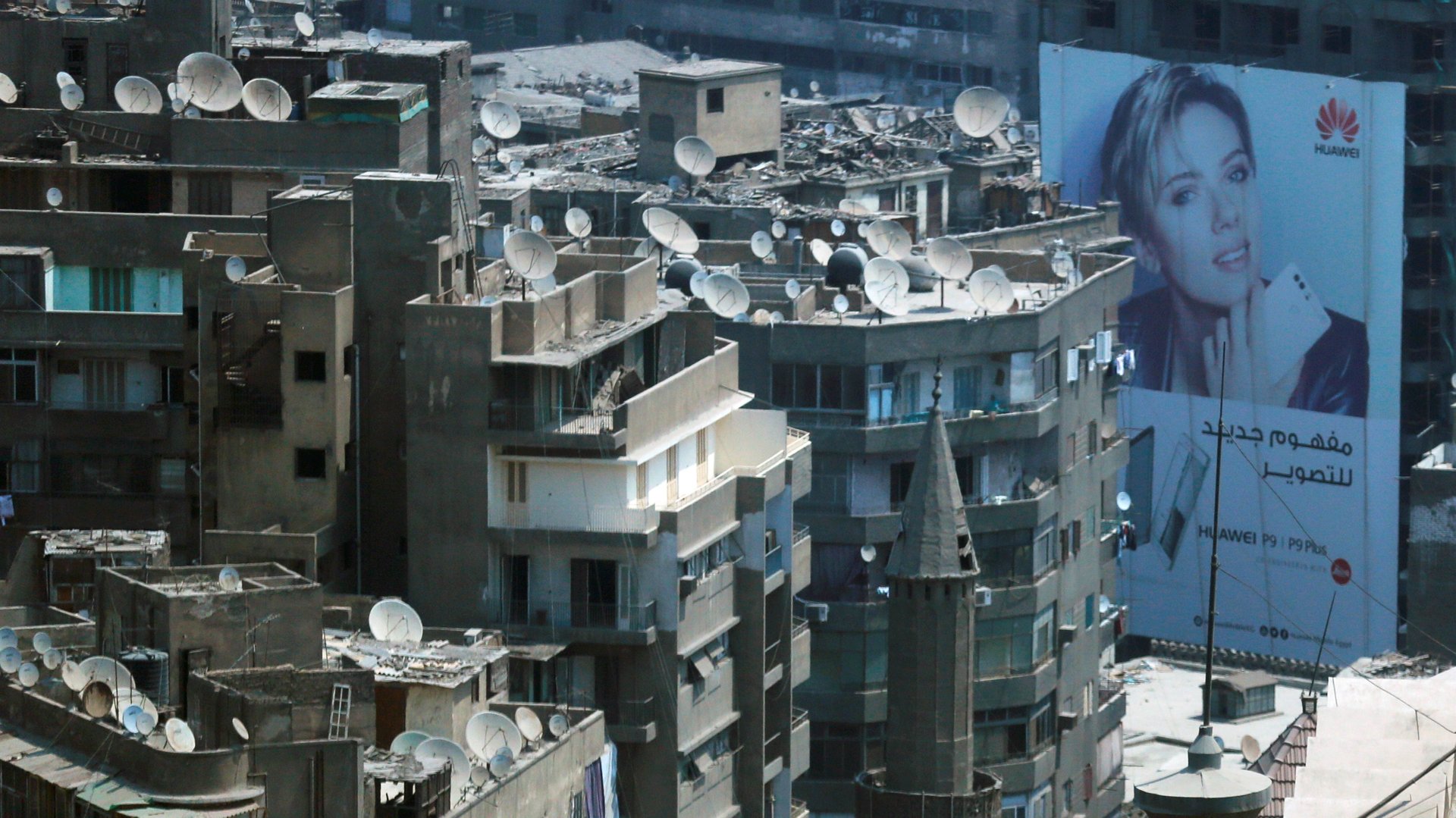African countries should stay loyal to China’s troubled Huawei—regardless of Trump
In January 2018, the unclassified version of the US National Defense Strategy designated China a strategic competitor. After that, it was only a matter of time until that strategic competition played out across the world, including in Africa.


In January 2018, the unclassified version of the US National Defense Strategy designated China a strategic competitor. After that, it was only a matter of time until that strategic competition played out across the world, including in Africa.
Ambassador John Bolton’s presentation of the administration’s Africa Strategy, with China central to its framing, drove home the point that the United States had chosen Africa as a theater in which China’s rise and pursuit of influence would be countered. It was also inevitable that whatever impact the trade war had on China would inexorably be felt in Africa, where China is the continent’s largest bilateral lender and trade partner.
Last week, the Trump administration’s move to limit Huawei’s access to American components brought the waves of the trade war ashore in ways that were perceptible to the most casual African observer of the China-Africa relationship.
The US ban on Huawei, the Chinese telecommunication giant, introduced uncertainty that should force consumers to attempt to diversify their products—an option that is not currently available to the average African government. This forces African states into a choice they have not sought and would rather not make, since Huawei is the singular dominant player in the construction of telecommunications backbone across the continent. Up to 70% of the continent’s IT spine is built by Huawei with a combination of Chinese grants and loans.
As the continent confronts a future where the prospect of smokestack industries is increasingly overtaken by automation and AI, many are counting on IT-related jobs to shoulder some of the job-creation burden. And what are (justifiably) seen elsewhere as unfair subsidies from the Chinese government to Huawei, which have put the company, by some estimates, a full year ahead of its closest competitors in 5G development, have been a boon to African nations.
China has practically subsidized Africa’s connectivity—as no other provider is capable of building the state of the art connectivity infrastructure at the price or pace that Huawei can. In a world where Africa’s choices are limited to European and American telecommunications providers, it is inconceivable that the connectivity and cell phone penetration we observe today would be possible.
In 2018, agents of the Australian Signals Directorate (the top intelligence agency in Australia) conducted a simulation of an attack on equipment connected to the 5G network. What they discovered so frightened them that Australia moved to ban Huawei and alerted other members of the Five Eyes, intelligence sharing nations.
Critical infrastructure, self-driving vehicles, and IOT were all exposed to the destructive potential of weaponized 5G. In a world where the new combat doctrine of the US Army seeks to prepare it for “the prospect of large-scale, mechanized warfare against technologically advanced near-peer rivals — such as Russia or China…,” then the moves against Chinese domination of the future of connectivity—5G—makes sense. What does not make sense is for any African country to adopt this position. It is unclear why African states would be more concerned about their network security from possible Chinese assault than either the UK or Germany, both of whom still intend to use Huawei.
Africa is still a continent where 19th, 20th and 21st century institutions, infrastructure and technologies exist side-by-side. In countries like Liberia, Guinea, Guinea Bissau, Central Africa Republic, South Sudan, and even whole swathes of Nigeria, the overriding concern is not the potential of a devastating attack on critical IT infrastructure by an adversary who gained an advantage by building our systems.
The concern is more prosaic—basic connectivity. It is about connecting each country to the internet in a way that is adequate, dependable and affordable. In places where the primary source of electricity is a solar home system that is barely enough to charge a phone and power two LED bulbs, how is protecting a putative 5G network relevant? This is still a continent where smartphone penetration is at 33% and South Africa is the “only country in the region where at least half of the population is online.”
Without a Chinese company, Transsion, providing its flagship Tecno smartphones for as low as $15, those numbers would be significantly lower. Tecno phones account for one out of every three smartphones on the continent. A world in which our options were again limited to Google Pixel, Samsung, or Apple products, smartphone penetration would be abysmal. We are too poor to afford those phones. Across the continent, we log on to a fast and affordable internet using cheap Chinese-built devices on Chinese-built networks. Africa’s internet future depends on components at a price that only China and Chinese companies can currently provide.
As I noted in a Twitter thread a few days ago, this is not a diminution of the West’s legitimate fears of a rising power who is determined to become a “rule-maker” in the international system and pursuing ends that are odds with the current power structure.
But Africa’s strategic interests lie in a direction opposite to the US position on Huawei and with no like-for-like alternative from the West, it should be no surprise that when the internet fragments, as many are predicting it might, that cost will play a dominant role in what side Africa chooses.
Sign up to the Quartz Africa Weekly Brief here for news and analysis on African business, tech and innovation in your inbox